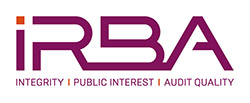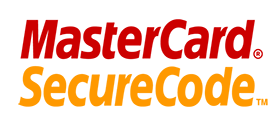IRBA approves IAASB revised suite of quality management standards for early adoption Strengthening the foundation of audit quality
|
Johannesburg, Thursday, March 18, 2021 – The Independent Regulatory Board for Auditors (IRBA) has announced that the Board has approved the International Auditing and Assurance Standards Board’s (IAASB) new and revised suite of international standards for quality management (ISQM). The South African audit regulator is one of the first in the world to have approved the standards for adoption. Says Imre Nagy, Acting CEO of IRBA: “We are pleased that the Board also indicated in its approval that it was also approving and encouraging early adoption in South Africa. This is set to have a major impact in strengthening audit firm quality management processes, thereby strengthening the foundation of audit quality.” This follows the IAASB issue of ISQM 1, ISQM 2 and ISA 220 (Revised) on September 24 last year with an effective date of 15 December 2022. These standards, which introduces a risk-based approach to quality management, replace the current International Standard on Quality Control (ISQC) 1 and revamp ISA 220. IRBA’s Committee for Auditing Standards (CFAS) moved quickly to enter into local consultation around the new standards during 2020 and was able to conclude and submit its recommendation to the Board of IRBA in only five months, to provide enough time for adoption and implementation across all firms in South Africa. While early adoption will be encouraged by the IRBA, the effective date allows time for wide-scale transition of systems, development of policies and procedures, assessment of service providers, establishment of network level controls and responses, and the preparation of resources to support the system of quality management. These standards have been revised to include two new fundamental pillars over the previous suite of quality control standards; and in ISQM 1 notably adds to the leadership pillar of the standard to address market concerns around audit firm governance - including structure, culture, and leadership commitment to audit quality. Says Nagy: “Audit firm structures, governance and quality management is a weakness which the South African regulator identified as being of concern in its root cause analysis following the events of 2017, which started with the Gupta Leaks in June and continued with the implosion of Steinhoff. It was clear to us that there were some fundamental leadership issues which needed to be addressed particularly with regards to tone-at-the-top with regards to audit quality, culture and ethics. “At a firm level, the new standards will drive more robust quality management systems at firms and embed this into firm culture. ISA 220 (Revised) strengthens engagement partner responsibilities and raises the bar at an engagement level in terms of audit quality.” IAASB Chair Tom Seidenstein says: “The decision of the IRBA to adopt the IAASB’s newly revised suite of quality management standards is an important step in enhancing audit quality for users and decision makers in the South African market. The standards place greater responsibility on firm leadership for continuously improving the quality of their engagements and remediating when deficiencies are found. Importantly when the standards are effectively implemented and enforced, market participants should benefit from firms having to demonstrate that a commitment to quality is at the heart of firm strategy and operations.” The three standards are:
The ISQM 1 and ISQM 2 standards will affect all firms, even those that don’t perform audits, and only do reviews, other assurance work, and related services. Imran Vanker, Director: Standards at the IRBA, who is also an IAASB Board member, chaired the ISQM 2 Task Force and was involved in the development and finalisation of ISQM 1 and ISA 220 (Revised). Ends
ISQM 1 deals with the firm’s responsibilities:
ISQM 2 deals with:
ISA 220 (Revised) deals with:
The IRBA is a public protection statutory body established to protect the financial interests of the public by ensuring registered auditors and their firms deliver services of the highest quality. It upholds audit firm independence to ensure that audit quality is such that it enhances the accuracy and credibility of financial performance reporting. In this way, the IRBA has an important role to play in building the reputation of South Africa as an investment market for both local and global investors and driving economic growth for the country. The IRBA also registers suitably qualified accountants as auditors, who must adhere to the highest ethics standards, and promotes the auditing profession through the effective regulation of assurance conducted in accordance with internationally recognised standards and processes.
|





